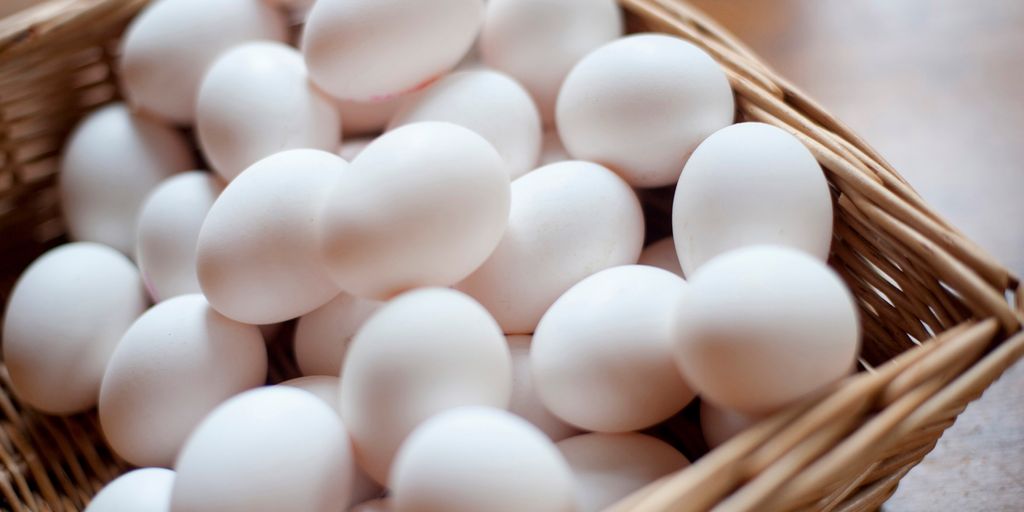Plain and simple, fresh eggs are the popular kitchen ingredient, which is valued for many of the essential qualities and benefits. Nonetheless, getting to learn when fresh eggs expire and the right method by which they should be stored can sometimes be rather challenging. The following is a detailed guide that will help you understand all that you need to know concerning the freshness of the eggs, proper storage methods that you can use as well as how to get the maximum benefits from your farm fresh eggs.
Key Takeaways
- Proper storage techniques can significantly extend the shelf life of fresh eggs.
- The float test is a simple and effective method to check an egg’s freshness.
- Refrigerated eggs generally last longer than non-refrigerated ones.
- Older eggs can still be used safely in cooking and baking as long as they show no signs of spoilage.
- Nutritional value of eggs can degrade over time, so it’s best to consume them while they are fresh.
Understanding Egg Freshness
Yeah! We’ve all been there, caught in the limbo of egg ambiguity, wishing each piece came with an expiry date. Because, let’s be real, nobody wants to play culinary roulette with a questionable, weeks old egg. From breakfasts to cookies, it’s important to make sure that the egg in your hand is good to use. For Ecowiser readers, we’ve made this guide that covers everything. The entire freshness timeline of an eggs, refrigerated and non-refrigerated ones, and the entire shebang.
Proper Storage Techniques

Refrigeration Tips
To ensure your eggs stay fresh for as long as possible, store fresh eggs in the fridge. This method extends the life of your eggs significantly. Here are some tips for optimal refrigeration:
- Away from the Door: Store eggs away from the refrigerator door to protect them from temperature fluctuations each time the door is opened. The middle or lower shelves are typically the best spots.
- Original Carton or Egg Tray: Keep eggs in their original carton or an egg tray. Cartons prevent eggs from absorbing strong odors and flavors from other foods and offer protection from light and any potential impacts.
- Maintain Optimal Humidity: If your refrigerator tends to be dry, storing eggs in a container with a slightly moistened paper towel can help maintain their quality by minimizing moisture loss through the shell.
- Pointy End Down: Store eggs with the pointy end down and the broad end up. This position helps keep the yolk centered and reduces the air cell’s growth, prolonging the egg’s freshness.
Room Temperature Storage
If you’re able to keep eggs with the bloom intact, you have the option of storing them at room temperature. Here are some guidelines:
- Keep Them Dry and Cool: If you decide to wash your eggs, do so with water warmer than the egg’s temperature and refrigerate them immediately after drying.
- Store Properly: Place eggs in a carton or an egg holder on a shelf in the refrigerator rather than on the door, where temperature fluctuations are more common.
Using Egg Cartons
Using egg cartons is essential for maintaining the freshness of your eggs. They prevent eggs from cracking and protect them from absorbing strong odors and flavors from other foods. Additionally, cartons offer protection from light and any potential impacts. Always store eggs in their original carton or an egg tray for best results.
The Float Test for Freshness

How to Perform the Float Test
The egg float test is a simple hack that can help you find out if your eggs are still fresh—it’s like a mini science experiment in your kitchen. To perform the test, fill a bowl with cold water and gently place the egg in it. A fresh egg will sink to the bottom and lay flat on its side. If the egg stands upright or starts to float, it is losing its freshness.
Interpreting Results
When interpreting the results of the float test, keep in mind the following points:
- A fresh egg sinks and lays flat on the bottom.
- An egg that stands upright but remains submerged is still good but not as fresh.
- A floating egg is no longer fresh and should be discarded.
Other Freshness Tests
Besides the float test, there are other methods to check the freshness of your eggs:
- The Smell Test: A spoiled egg will have a putrid smell and should be disposed of immediately.
- The Visual Inspection: Check for any cracks or unusual discoloration on the shell.
- The Shake Test: Gently shake the egg; if you hear a sloshing sound, the egg is likely old.
Cleaning and Handling Eggs

Washing Eggs
As for washing, one should note that this process should be carried out using warm water (not hot)water to not harm the fragile eggshell. After rinsing process, immerse the eggs in sanitizing solution, you could use diluted bleach water or vinegar water to sanitize the eggs. All parts of the egg should be covered with the sanitizing solution before the delicate structures may be rinsed off with clear water after, at least 30 seconds soaking time is recommended.
Handling Tips
To maintain the integrity of the eggshell, avoid using hot water during cleaning. Instead of washing off any dirty eggs, carefully scrub them away with a rough cloth, paper towel, or your fingernail until you have clean eggs. This should get rid of the muck while preserving the bloom. However, very dirty eggs should be rinsed under warm water before refrigerating.
Avoiding Contamination
It is important to note that outside surface does matter because if an eggshell is dirty, it may bear bacteria; Salmonella inclusive. However, washing eggs is not advisable because germs may get on the eggs and also washing will reduce a layer called the bloom that helps in protecting the eggs from bacteria. However, washing may be required and when washing, water which is hotter than the water in the egg should be used as the pores may absorb water which has been contaminated and eggs should be used sooner, but not be stored for a longer period.
Refrigerated vs. Non-Refrigerated Eggs

When washing the eggs, a point one has to take note of is that passive warm water has to be used and not hot water as this would harm the eggs. Refrigeration is necessary Before disinfecting the eggs, wash them thoroughly to remove any dirt that may be on the eggs before proceeding to disinfect the eggs using disinfected food grade sanitizing solution such as diluted bleaching solution or diluted vinegar in warm water. Make sure that all areas of the egg are contacted with the sanitizing solution and let them stay wet for about half a minute then wash them with clean warm water.
Shelf Life Comparison
Refrigerated eggs generally have a longer shelf life compared to non-refrigerated ones. Here’s a quick comparison:
| Storage Method | Shelf Life |
|---|---|
| Refrigerated | 3-5 weeks |
| Non-Refrigerated | Up to 2 weeks |
Pros and Cons
Refrigeration Pros:
- Longer shelf life
- Reduced risk of bacterial infection
Refrigeration Cons:
- Requires consistent cold storage
- Eggs must be used quickly once removed from the fridge
Non-Refrigeration Pros:
- Convenient for short-term storage
- No need for electricity
Non-Refrigeration Cons:
- Shorter shelf life
- Higher risk of bacterial contamination
Best Practices
- Store eggs in their original carton on an inside shelf of the refrigerator to keep them at a constant temperature and prevent moisture loss.
- If you choose to store eggs at room temperature, ensure they are unwashed and use them within two weeks.
Freezing Fresh Eggs

How to Freeze Eggs
If you have more eggs than you can use within a few weeks, you can freeze them, but make sure to do it properly. Freeze only clean, fresh eggs. First, crack each egg out of its shell, as the egg white and yolk expand when frozen, which can damage the shell. Place the eggs in freezer containers, seal tightly, and label with the number of eggs, whites, or yolks, and the date. Eggs can be frozen for up to a year, but for maximum freshness, use them within four months.
Thawing Frozen Eggs
Frozen eggs must be completely thawed before usage and can only be used in fully cooked foods. Never cook eggs straight from the freezer. To thaw, transfer the egg from the freezer to the refrigerator and keep it there overnight to avoid bacteria exposure. If you need to speed up the process, run cold water over the freezer container. Make sure to use the eggs immediately after they’ve thawed.
Uses for Frozen Eggs
Frozen eggs are versatile and can be used in various recipes. They are ideal for baking, as well as for making scrambled eggs or omelets. However, remember that egg yolks thicken when frozen. To hinder gel formation, beat in either 1/8 teaspoon salt or 1-1/2 teaspoons sugar or corn syrup per yolk before freezing. This will ensure a smoother consistency when you use them later.
Using Older Eggs Safely

Cooking with Older Eggs
Older eggs can still be used safely in many dishes. Before using the egg, perform a float test or one of the other tests if you’re unsure the egg is still good or not. Older eggs are best used for baking. They will work the same as fresh eggs but the lack of freshness can’t be tasted. For example, you can use them in cakes, muffins, and other baked goods without any issues.
Baking with Older Eggs
When it comes to baking, older eggs are often preferred. The slightly runnier whites can actually make for better mixing and incorporation into batters. This can result in fluffier cakes and more tender baked goods. Just make sure to keep them in the refrigerator for up to 4 weeks past the expiration date. After that, you’d best get to gardening!
Signs of Spoilage
It’s crucial to recognize the signs of spoilage to avoid any health risks. Here are some indicators:
- Smell: A bad egg will have a distinct, unpleasant odor.
- Appearance: Check for any discoloration or unusual spots on the shell.
- Texture: If the egg white is too runny or the yolk is discolored, it’s best to discard it.
Always err on the side of caution when it comes to egg freshness. If in doubt, throw it out.
Nutritional Value Over Time

Nutrient Degradation
In the course of the period, worth of nutrients in. Fresh eggs may decrease or slightly change in composition. It’s a known fact that newly laid eggs contain more vitamins and minerals than they do when they are comparatively older. Nutrient depletions are the primary factor in degradation, and the nutritional quality is seen to decline as the egg progresses in development. This degradation depends on factors such as; where the steroids are stored as well as the temperatures in the storage areas.
Maintaining Nutritional Quality
As a result, eggs’ nutrient quality must be preserved through storage parameters to remain fresh and rich in nutrients. Cold denatures the nutrients hence reducing the rate of degradation as compared to their counterparts at room temperature. The author has also noted the fact that people should always store eggs in their cartons as they tend to take on smells of other foods.
Health Benefits of Fresh Eggs
New eggs provide a lot of advantages when it comes to health and weight some of these are; Fresh eggs are low carb foods with less than 1gram of carbohydrate in every large egg. They are also packed with quality proteins ideals fats for our body requirements as we strive to maintain a healthy nutritional balance. Fresh eggs to a large extent can be part of the nutritional value of a person’s meal, and can contribute to the well being of an individual.
Common Myths About Egg Freshness

Debunking Myths
One common myth is that white eggs are better than brown eggs. In reality, the color of the eggshell has no impact on the freshness or quality of the egg. Another misconception is that dates are the best indication of egg freshness. While dates can be helpful, they are not always the most reliable indicator.
Scientific Facts
Research has shown that all together, the age of the egg, and the conditions under which such eggs are stored, pose greater influence towards its freshness. For example, boiled eggs that have been placed in the fridge are likely to last much longer than those left at the room temperature. Yeast activity and bacteria also affects the shelf life of the eggs as well as alters its color.
Consumer Misconceptions
Some people argue that fresh eggs are usually better than more stale ones, which may not be quite accurate. Indeed, older eggs are acceptable to use for baking because they have less risk of being unsuitable for storage as compared to frying or boiling. Nevertheless, in practice, it is easier to determine the freshness of the egg based on its external characteristics and the odor at the time of purchase compared to the calibrate date on the carton.
Eco-Friendly Egg Storage Solutions
Sustainable Practices
Adopting sustainable practices for egg storage is essential for reducing our environmental footprint. Keeping eggs dry and cool is a fundamental step. If you decide to wash your eggs, do so with water warmer than the egg’s temperature and refrigerate them immediately after drying. This helps maintain their freshness and reduces waste.
Eco-Friendly Containers
Using eco-friendly containers is a great way to store your eggs while being kind to the planet. Our cartons are fully biodegradable, making them a great choice for local farmers who care about their lovely hens and keeping our planet sustainable! You can find these cartons online or at local co-ops and health food stores. They are lightweight, stackable, and won’t break easily.
Reducing Waste
This section on environmentally conscious egg storage shows that waste minimization is an important aspect to consider when preserving eggs. Consider the bloom: if you are in a position to preserve the bloom on eggs, you have the ability to store your eggs at a standard room temperature. This has the advantage of not having to put much effort in keeping them cold thereby saving energy. Also, instead of the cartons made from Styrofoam or other non-recyclable materials, one can buy the reusable ones or find biodegradable variants.
Buying Fresh Eggs

Choosing Quality Eggs
However, to make sure that you are using the right eggs here are some factors of consideration when choosing eggs. First, identify eggs with tidy shells and no cracks and lastly, empty the carton and observe the date on it. Discover essential tips for selecting the best eggs, including how to read labels and grades as well as the color and how fresh the eggs are.
Farm vs. Store-Bought
Eggs especially the ones from farms are better than the ones sold in supermarkets as the chickens are treated better and the eggs generally have better taste than the commercial ones. But it is evident that eggs bought from markets are easier to obtain and had also been through series of safety measures. Make a comparison between the two options and come up with a conclusion of which one would be best suited for the interest of the client.
Supporting Local Farmers
Nothing compares to knowing that you are contributing to local farmers and eating fresh eggs sourced directly from the farm. Not only that, when you patronize locally produced eggs you are supporting your community farmers and encouraging environment friendly farming. Take this advice, and you will be able to have farm eggs fresh whenever and wherever you would wish for.
Conclusion
Thus, knowing the shelf life of fresh eggs and how to store them properly is a key to appreciation of this product’s taste, as well as the contents’ preserving of beneficial nutrients. By ensuring that you adhere to the principles that have been illustrated in the article above, you should be in a good position to quality your farm fresh eggs for as long as possible. When you make your decision to place potatoes in the refrigerator or leave them at normal storage conditions, always conduct simple trial that include the float test to determine the last time they were processed. Spare it in your bookmarks, and neither will you ever be unsure whether the eggs you’re about to steam or fry are the good ones. Take some time to read our Eco Nourish series for more inspiration on how to live sustainably and store foods properly.
Frequently Asked Questions
How long do fresh eggs last when refrigerated?
When stored in the refrigerator, fresh eggs can last for about 3 to 5 weeks. It’s important to keep them at a consistent temperature to maintain their freshness.
Can you store fresh eggs at room temperature?
Yes, fresh eggs can be stored at room temperature for up to two weeks. However, refrigeration is recommended to extend their shelf life and ensure safety.
What is the float test for egg freshness?
The float test involves placing an egg in a bowl of water. If the egg sinks and lays flat on its side, it is fresh. If it stands upright or floats, it is older and may not be safe to eat.
How can I tell if an egg is spoiled?
Spoiled eggs often have a foul odor when cracked open. Additionally, if the egg white is watery or the yolk is discolored, it is best to discard the egg.
Is it safe to eat eggs past their expiration date?
Eggs can often be consumed past their expiration date if they have been stored properly and show no signs of spoilage. Always perform a freshness test to be sure.
Can you freeze fresh eggs?
Yes, fresh eggs can be frozen. It’s best to crack them into a container, beat until blended, and then freeze. They can be stored in the freezer for up to a year.
What are the best practices for handling fresh eggs?
Always wash your hands before and after handling eggs. Avoid cross-contamination by keeping eggs separate from other foods and using clean utensils and surfaces.
Do farm-fresh eggs last longer than store-bought eggs?
Farm-fresh eggs can last longer than store-bought eggs due to their freshness at the time of purchase. Proper storage is key to extending their shelf life.




